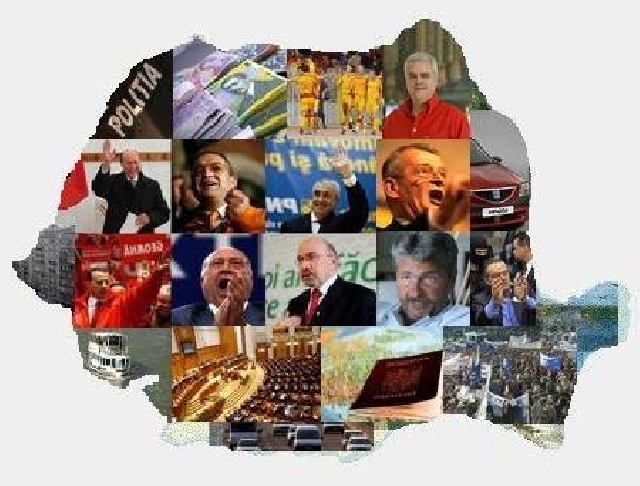The Week in Review, March 9-15
A look at the main events in Romania this past week

Corina Cristea, 15.03.2015, 13:37
Romanian-German bilateral relations
German Foreign Minister Frank-Walter Steinmeier this week paid an official visit to Bucharest. The German official argued in favour of finding a solution to allow Romania to join the Schengen Area, also underlining the progress mentioned in the latest report made public under the Cooperation and Verification Mechanism for Romania. Bucharest says Romania is already acting as a Schengen Member, while its official accession would only add to the security of the area. During his talks with Romanian officials, Minister Steinmeier said that Romania had been making progress that German investors appreciate, although a lot more still needs to be done in terms of transparency. The approximately 350,000 Romanians currently employed in Germany are among the best-integrated workers on the German labour market, while any biased attitudes towards them are ungrounded, the German official also said. Germany is Romania’s largest trade partner and third-largest investor.
President Klaus Iohannis visits Poland
Romania’s president Klaus Iohannis paid an official visit to Poland, where he discussed with his counterpart Bronislaw Komorowski security developments in the region, with a focus on Ukraine. Bronislaw Komorowski said Poland was counting on Romania’s support as regards strengthening NATO’s eastern flank, and argued in favour of taking important decisions at the NATO summit to be held next year in Warsaw, which should help ensure security in the region. Talks also focused on the Strategic Partnership between Romania and Poland and the two officials signed a joint declaration aimed at boosting cooperation.
Bronislaw Komorowski: “This partnership is extremely necessary in the context of the latest developments in part of Europe, where regional security has undergone certain negative changes”.
President Iohannis also referred to the crisis in Ukraine:
Klaus Iohannis: “I have reiterated Romania’s full support for the sovereignty, independence and territorial integrity of Ukraine within its internationally recognized borders. I have vocally condemned the serious deterioration of the security situation in south-eastern Ukraine, also expressing hope for a progressive implementation of the measures provided in the Minsk agreement of February 12”.
Klaus Iohannis also pointed out that Romania wanted to attract a larger number of Polish visitors to Romania and to increase the presence of Romanian businesses on the Polish market.
Historical high for the American dollar
The American dollar has this week reached a new high, being traded at 4.2 lei, according to the currency exchange rate made public by the National Bank of Romania. On the Romanian currency market the dollar is rated against the dollar- euro exchange rate on the international markets, and its fluctuation is mainly the result of the difference between the monetary policy of the European Central Bank and that of the American Bank, explained Ionut Dumitru, the vice-president of the Romanian Association of Financial and Banking Analysts. For Romania, the impact at economic level is limited, given that the relation with the American dollar has diminished once the country joined the EU.
European Commissioners in Bucharest
The infrastructure projects included in Romania’s transport master plan will also be financed from EU money. 6.8 billion euros will be allocated for this purpose by 2020. The European Commissioner for Regional Policy, Corina Cretu, said in Bucharest that Brussels was waiting for Romania to submit the final version of its transport master plan, which is a requirement for the approval of the Large Infrastructure Operational Programme. The master plan includes projects that can be funded through the Infrastructure Operational Programme as well as other projects that could be implemented with European money accessed from the funds allotted for the 2014-2020 period. The Romanian transport minister, Ioan Rus, has pointed out that the list of investment projects included in the transport master plan is ready and that the document will be finalized by the end of April. Another EU official to visit Bucharest this week was the European Commissioner for Agriculture, Phil Hogan, who has had talks with Romanian officials about the situation of pork meat in certain European countries, Romania included, following Russia’s ban on imports from the European Union. Although they do not export to the Russian market, Romanian farmers are faced with certain problems caused by the surplus of pork products on the European market, which has led to a significant drop in the price of pork meat.
The anticorruption fight goes on
Another Romanian politician has come under the fire from the National Anti-Corruption Directorate, namely the mayor of Bucharest’s sector 5 and a former Social Democratic Party member, Marian Vanghelie. He is being investigated in a case regarding the award of public contracts. According to anti-corruption prosecutors, Marian Vanghelie is suspected of receiving 20% of the value of the contracts signed by the Sector 5 mayor’s office since 2007 with companies controlled by another businessman who is currently in custody for involvement in a different corruption case. It is estimated that Vanghelie received around 90 million euros this way, using as intermediaries people in his entourage and companies, including one managed by his partner, Oana Niculescu Mizil, herself a former member of the Social Democratic Party, who is also being investigated in this case.



























